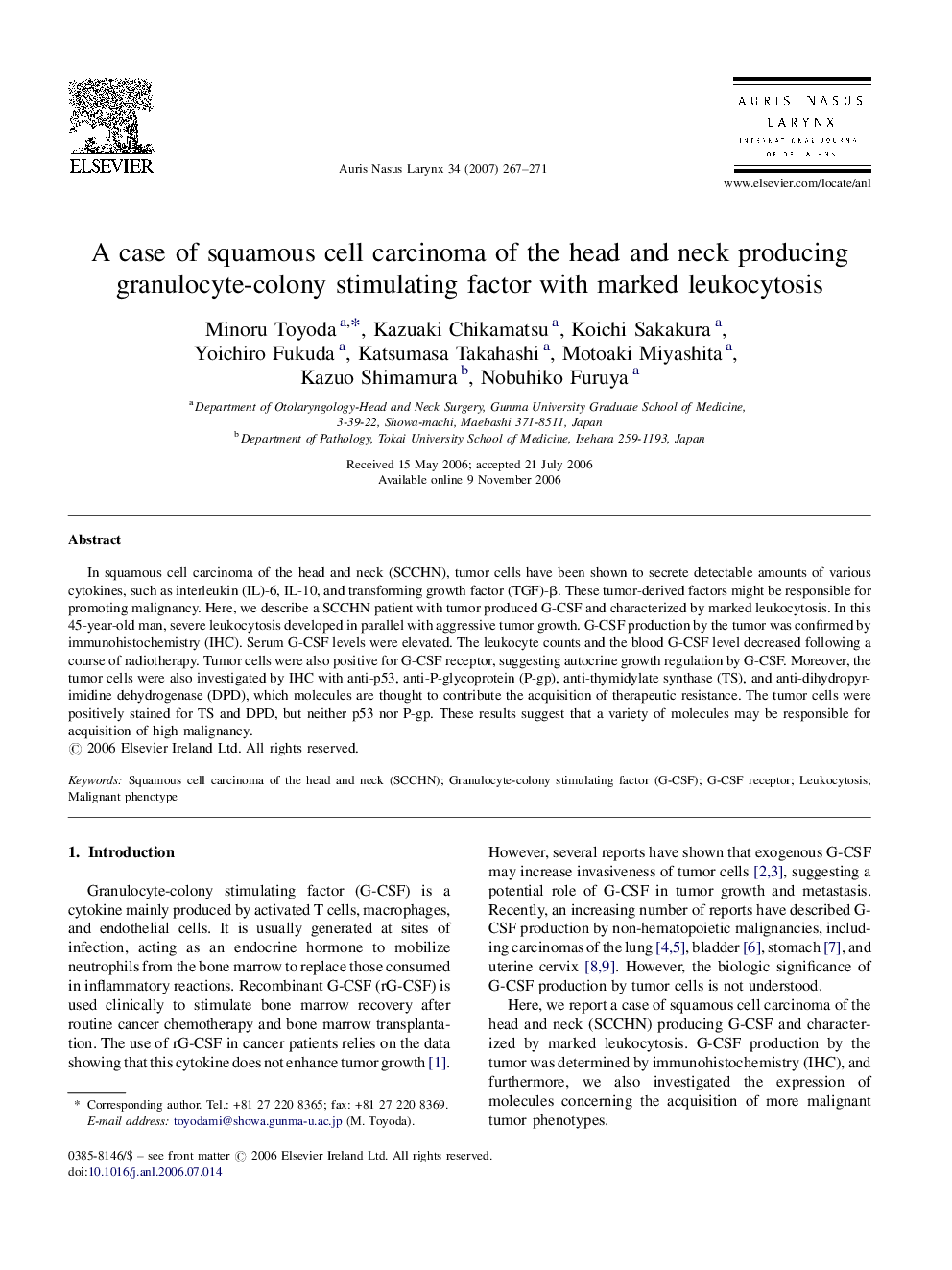| Article ID | Journal | Published Year | Pages | File Type |
|---|---|---|---|---|
| 8756865 | Auris Nasus Larynx | 2007 | 5 Pages |
Abstract
In squamous cell carcinoma of the head and neck (SCCHN), tumor cells have been shown to secrete detectable amounts of various cytokines, such as interleukin (IL)-6, IL-10, and transforming growth factor (TGF)-β. These tumor-derived factors might be responsible for promoting malignancy. Here, we describe a SCCHN patient with tumor produced G-CSF and characterized by marked leukocytosis. In this 45-year-old man, severe leukocytosis developed in parallel with aggressive tumor growth. G-CSF production by the tumor was confirmed by immunohistochemistry (IHC). Serum G-CSF levels were elevated. The leukocyte counts and the blood G-CSF level decreased following a course of radiotherapy. Tumor cells were also positive for G-CSF receptor, suggesting autocrine growth regulation by G-CSF. Moreover, the tumor cells were also investigated by IHC with anti-p53, anti-P-glycoprotein (P-gp), anti-thymidylate synthase (TS), and anti-dihydropyrimidine dehydrogenase (DPD), which molecules are thought to contribute the acquisition of therapeutic resistance. The tumor cells were positively stained for TS and DPD, but neither p53 nor P-gp. These results suggest that a variety of molecules may be responsible for acquisition of high malignancy.
Related Topics
Health Sciences
Medicine and Dentistry
Medicine and Dentistry (General)
Authors
Minoru Toyoda, Kazuaki Chikamatsu, Koichi Sakakura, Yoichiro Fukuda, Katsumasa Takahashi, Motoaki Miyashita, Kazuo Shimamura, Nobuhiko Furuya,
